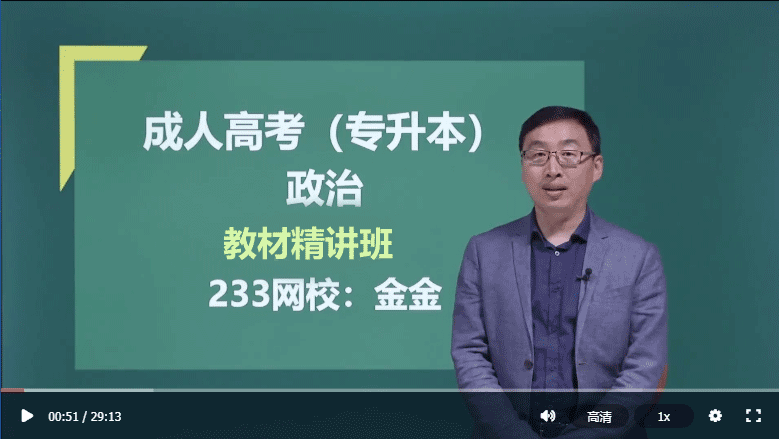цфККхІфНшБшЏхЄшшЏцБфИццЗЗцЗшЏфИ
уу51. childishяМ childlike
ууchildishхЙМчЈчухІяМIt was very childish of him to lose his temper over something so unimportant.
ууchildlikeхЉхшЌхЄЉччухІяМWhen she won the gold medalяМ there was childlike smile on her face.
уу52. chooseяМ pickяМ selectяМ elect
ууchooseцЏфИхИИчЈшЏяМшЁЈфИшЌчтщцЉту
ууpickщхИИчЈфКфИщшІшЎЄчцшЁЁяМхЏЙцЏхАБшНххКхГхЎу
ууselectфОЇщтхЈхчБЛчшЎИхЄфИшЅПфИяМшПшЁццщ ччВОщту
ууelectцщфИОцчЈх ЖфЛцЙцГцЈщфККу
уу53. clothяМ clothing
ууclothхИухІяМI need three yards of cloth to make a suit.
ууclothingшЁЃцяМцЛчЇАяМухІяМYouтd better give all the old clothing away.
уу54. complexяМ complicated
ууххЏшЁЈтхЄцту
ууcomplexфИКхИИчЈшЏу
ууcomplicatedфИКцЃхМчЈшЏяМшЁЈчБфКчЛцщЈххЄЊхЄяМчИфКх ГчГЛхЄЊхЄцшфИшНчшЇЃяМшЏцАхОхМКу
уу55. composeяМ consistяМ constitute
ууcomposeфИКхИИчЈшЏяМхИИчЈшЂЋхЈшЏцяМхІчЈфИЛхЈшЏцяМфИЛшЏхКчЈхЄцАхНЂхМухІяМTwelve men compose a jury.яМхфКфККчЛцщЊхЎЁхЂуяМ
ууconsistшЁЈфИфИЊцДфНчБх фИЊщЈхчЛцяМхЊшНчЈфИЛхЈшЏцяМухІяМThe United Kingdom consists of Great Britain and Northern Island.яМшхчхНцЏчБхЄЇфИхщЂ ххчБхАх АчЛууцуяМ
ууconstituteфИКцЃхМчЈшЏяМфИconsistчИхяМшЁЈчБхЊфКщЈхцццДфНухІяМTwelve months constitute a year.яМфИхЙДцхфКфИЊцуяМ
уу56. considerableяМ considerate
ууconsiderableчИхНхЄчяМхЏшЇчухІяМHe met a considerable amount of trouble.яМфЛщхАфКшЎИхЄщКЛчІуяМ
ууconsiderate шшхЈхАчяМфНшА чухІяМIt was considerate of you not to trouble us.яМфН чфНшДДфККяМфИццАцфЛЌуяМ
уу57. consistentяМ constantяМ continualяМ continuous
ууconsistentфИшДчяМчЌІхчухІяМHis action is always consistent with his words.
ууconstantфИцчяМшЁЈчЄКцчЛхцЏхИИчщчАяМхОхОцВЁцххухІяМHe attributes his health to his constant exercise.
ууcontinualщЂщЂчяМфИхчяМцЖццЖчЛяМфИщДхЏцщДцухІяМContinual smoking is bad for health.
ууcontinuousфИцхЛЖфМИчяМшПчЛфИцчяМхМКшАфИщДц щДцухІяМEverything in the universe undergoes continuous development and change.
уу58. crackяМ crash
ууcrackяМфНПяМч ДшЃяМч ИхМухІяМI can crack itяМ but I canтt break it. яМцшНцхЎхМшЃяМфНфИшНцхЎхМч ДуяМ
ууcrashцхяМх цЏухІяМThe plane crashed shortly after the take-off.яМщЃцКшЕЗщЃфИфЙ хАБх цЏфКуяМ
уу59. crawlяМ creep
ууcrawlхЄцшяМшЋчБЛчшКЋфНцВПхАщЂцх ЖфЛшЁЈщЂчхЈфНухІяМThere is an insect crawling up your back. яМцфИшЋхцЃхЈфН чшфИхОфИчЌуяМ
ууcreepхЄцхКфЙГхЈчЉцфККччЈхшЂчЌшЁчхЈчЉхЗхЗцИцИц хЃАчМц ЂчхшЁхЈфНухІяМThey arrived late and crept into the classroom.яМцфЛЌшПхАфКяМфОПццхАцКшПцхЎЄуяМ
уу60. cureяМ treat
ууcureцВЛцяМхЛцВЛухІяМThe medicine will cure of your disease.яМшПшЏшНцВЛхЅНфН чч уяМ
ууcureшЁЈчЄКцВЛхЅНяМtreatхЊшЁЈчЄКтчЛтІтІцВЛч ту
уу61. currentяМ present
ууххЏшЁЈтчАхЈтяМтчЎхту
ууcurrentхМКшАхЈчАщЖцЎЕцЃхЈцЕшЁяМщчЈяМфНфИфИхЎцЏцАчухІяМcurrent English яМхНфЛЃшБшЏяМ
ууpresentфИКхИИчЈшЏяМцчАхЈцЃхЈщчЈчяМхЈцЖщДфИцЏcurrentчшхДцДчЊухІяМWhatтs your present addressяМяМфН чАфНхцЏхЊщяМяМ
уу62. customяМ habit
ууххЏшЁЈфЙ цЏу
ууcustomфИКцЃхМчЈшЏяМхЄцчЄОхЂцфККфЛЌчфЙ цЏшЁфИКцЙхМу
ууhabitфИКхИИчЈшЏяМхЄцфИЊфККх хЄцЌЁщхЄшхНЂцхцфКчшЖхПцццПухІяМHe has the bad habit of biting his nails.яМфЛцхЌццчхфЙ цЏуяМ
уу63. damageяМ destroyяМ harmяМ ruin
ууххЏшЁЈтч ДхтяМтцхту
ууdamageфИшЌцщЈхцЇчч ДхяМхЋхЏфПЎхЄфНПчЈу
ууdestroyцхххНЛхКчцЏхяМч ДхухІяМThe whole city was destroyed in the earthquake.яМхАщфИцДфИЊххИшЂЋцЏфКуяМ
ууharmхЄцхИІцЅцВчяМфКЇчцЖцчфМЄхЎГяМхЏфЛЅцЏшфНчфЙхЏцЏчВОчЅчухІяМDoctors say smoking harms our health.яМхЛчшЏДхИчхЏЙшКЋфНцхЎГуяМ
ууruinфИКцЃхМчЈшЏяМхМКшАчБфКшЊчЖхццЖщДчфНчЈшщцИцхяМчЈфКцЏхЛцЖфЙцхНЛхКцЏхххЃАяМццчухІяМShe poured water all over my painting and ruined it. яМхЅЙццАДххЈчЛфИяМцхЎцЏфКуяМхІхЄяМruinчхЄцАхНЂхМruinsшЁЈтхКхЂту
чИх ГцЈш
- 2017хЙДцфККщЋшфИхцЌшБшЏшшЏххЙДчщЂфНцчВОщцБцЛ03-28
- 2017хЙДцфККщЋшфИхцЌшБшЏшшЏххЙДчщЂфНцчВОщфЙ03-24
- 2017хЙДцфККщЋшфИхцЌшБшЏшшЏххЙДчщЂфНцчВОщх Ћ03-24
- 2017хЙДцфККщЋшфИхцЌшБшЏшшЏххЙДчщЂфНцчВОщфИ03-24
- 2017хЙДцфККщЋшфИхцЌшБшЏшшЏххЙДчщЂфНцчВОщх 03-24
| ПЮГЬзЈвЕУћГЦ | НВЪІ | дМл/гХЛнМл | УтЗбЬхбщ | БЈУћ |
|---|---|---|---|---|
| гяЮФ(ИпЦ№Еу)ОЋНВАр | ЕЫО§УФ | ЃЄ150 / ЃЄ150 |  |
БЈУћ |
| гЂгя(ИпЦ№Еу)ОЋНВАр | Monica | ЃЄ150 / ЃЄ150 |  |
БЈУћ |
| Ъ§бЇ(ЮФ)ОЋНВАр | ЭѕЗМ | ЃЄ150 / ЃЄ150 |  |
БЈУћ |
| Ъ§бЇ(Рэ)ОЋНВАр | ТогзжЅ | ЃЄ150 / ЃЄ150 |  |
БЈУћ |
| ДѓбЇгяЮФ(зЈЩ§БО)ОЋНВАр | ХЗбєАиСи | ЃЄ150 / ЃЄ150 |  |
БЈУћ |
| гЂгя(зЈЩ§БО)ОЋНВАр | Monica | ЃЄ150 / ЃЄ150 |  |
БЈУћ |
| ИпЕШЪ§бЇ(вЛ)(зЈЩ§БО)ОЋНВАр | ЭѕЬЮ | ЃЄ150 / ЃЄ150 |  |
БЈУћ |
| ИпЕШЪ§бЇ(Жў)(зЈЩ§БО)ОЋНВАр | ТогзжЅ | ЃЄ150 / ЃЄ150 |  |
БЈУћ |
ИЈЕМПЮГЬ
- ИпЦ№Еу-Ъ§бЇ(ЮФЪЗВЦОРр)

- ЭѕЗМРЯЪІ
 УтЗбЪдЬ§
УтЗбЪдЬ§
- ИпЦ№Еу-гЂгя

- MonicaРЯЪІ
 УтЗбЪдЬ§
УтЗбЪдЬ§
- зЈЩ§БО-ДѓбЇгяЮФ

- ХЗбєАиСиРЯЪІ
 УтЗбЪдЬ§
УтЗбЪдЬ§
АрМЖНщЩм
ЬзВЭАќКЌЃКзЈЩ§БОVIPАр/ИпЦ№ЕуVIPАрЃЈКЌОЋНВ+ецЬтНтЮі+ФЃПМЕуЬт)
ЬзВЭгХЪЦЃК1ЁЂЫјЖЈКЫаФПМЕу
2ЁЂПМЧАЗЂЗХ2ЬзЪдЬт
3ЁЂУтЗбжибЇвЛДЮБЃеЯ
ХфЬзЗўЮёЃК1ЁЂУтЗбЬтПт
2ЁЂПЮГЬНВвх+ПЮМўЯТди+вЦЖЏПЮЬУ







 УтЗбЪдЬ§
УтЗбЪдЬ§ 




